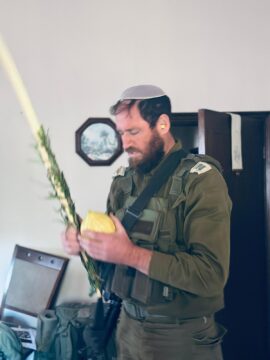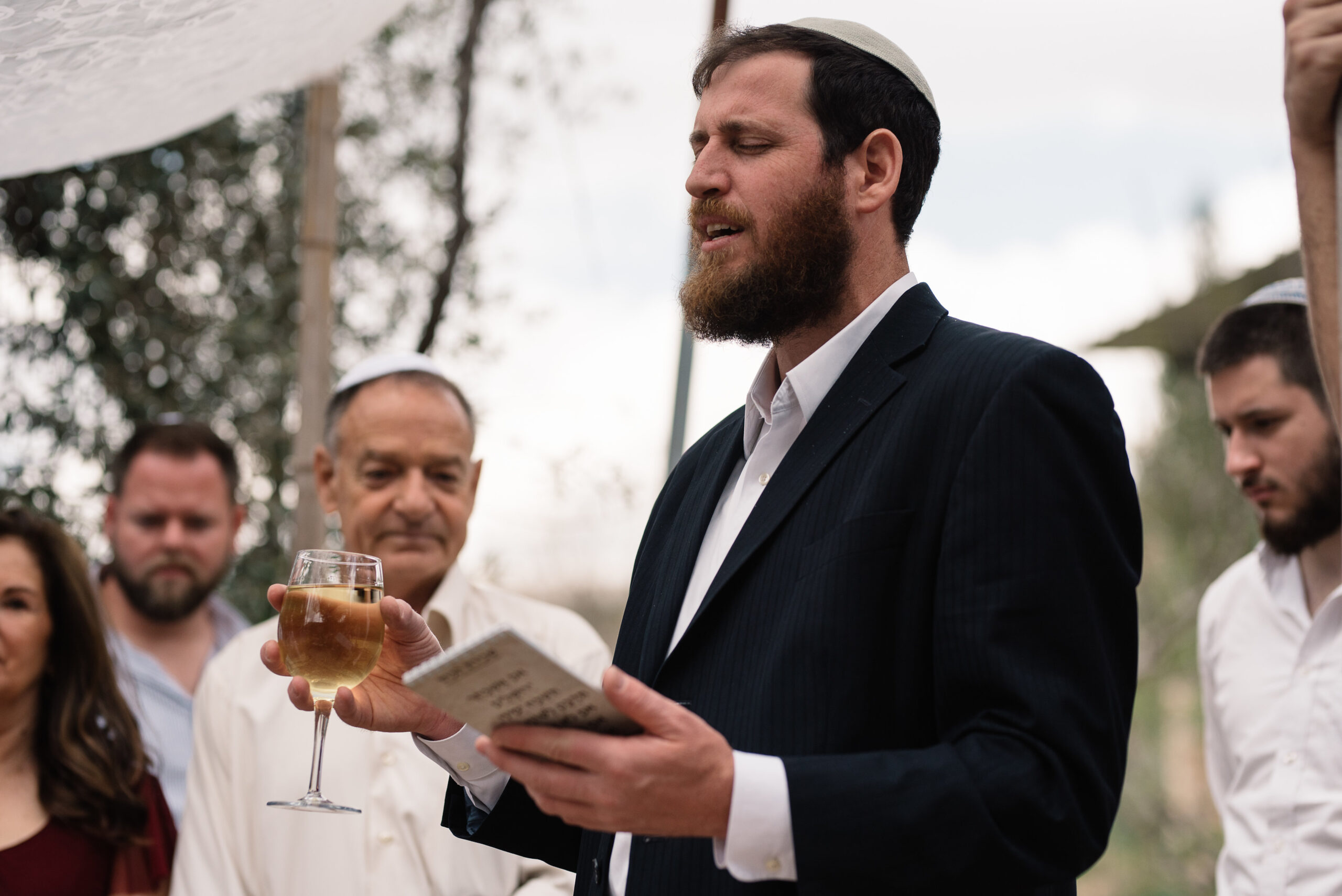It was one of the most painful mornings I can remember, just under a year ago
. I was on the bus on my way to Sherut Leumi when I got the devastating message in the community WhatsApp group about the fall of Rav Avi.
Rav Avi Goldberg—an educator, a man of chesed,
Rav Avi Goldberg—an educator, a man of chesed,
and if you ask me, above all, a role model of ahavat Am Yisrael.
Rav Avi was married to Rachel and the father of eight incredible, beloved children—Yehuda, the oldest, age 21, and Neveh, the youngest, just 3 years old.
Rav Avi was married to Rachel and the father of eight incredible, beloved children—Yehuda, the oldest, age 21, and Neveh, the youngest, just 3 years old.
Whenever I looked at their amazing family, I would ask myself how parents manage to raise eight children with such strong values and dedication.
Every one of them was always engaged in doing something for Am Yisrael.
Rav Avi fell at the age of 43, even after receiving an exemption from the army
Rav Avi fell at the age of 43, even after receiving an exemption from the army
—not once, but twice: once when his sixth child, Hillel, was born, and again after he turned 40.
But none of that stopped him from volunteering for the army, again and again.
In this war, he served hundreds of days in miluim, far away from his family.
His official role was to be the battalion rabbi—
to provide spiritual guidance and support to over 100 soldiers during the fighting.
According to basic army regulations, Rav Avi wasn’t supposed to engage in combat.
He could have focused solely on the spiritual needs of the soldiers.
But that wasn’t Rav Avi.
But that wasn’t Rav Avi.
To him, it was unthinkable that his soldiers would be fighting for our beloved land
while he stood on the sidelines. So he fought alongside them—
like one of the young soldiers—while also filling them with ruach Yehudit,
strengthening them, sending weekly divrei Torah, and drawing them closer to avodat Hashem.
Rav Avi was a beloved teacher and educator at the Himmelfarb High School Yeshiva.
Rav Avi was a beloved teacher and educator at the Himmelfarb High School Yeshiva.
His students would often say how amazed they were by how much he genuinely cared about them
—how he was always interested in their lives and there for them,
even after he no longer taught their class.
He also served as a rabbi with the Tzohar organization,
where he helped bring Jews closer and guided many couples to marry in a Jewish wedding.
Many couples shared how deeply meaningful he was to them at their wedding.
Every Yom Kippur, Rav Avi and his family would travel to a secular kibbutz
Every Yom Kippur, Rav Avi and his family would travel to a secular kibbutz
in the north to lead the Yom Kippur prayers—
always with love and joy—to pray with Jews for whom prayer was not part of their daily lives.
Rav Avi and Rachel’s family also did shlichut in a Jewish community in the United States.
And beyond all the official frameworks—
Rav Avi and Rachel’s family also did shlichut in a Jewish community in the United States.
And beyond all the official frameworks—
he was always out there: playing music for patients in hospitals,
bringing joy to Holocaust survivors,
serving as a chazzan in shul, or simply lighting up someone’s day with a smile on the street.
Thousands came to Rav Avi’s shivah—
Thousands came to Rav Avi’s shivah—
people who knew him, and people who had only heard about him but felt compelled to come,
to listen, to comfort.
Rav Avi fell, and in his absence, a great void opened in the world.
Rav Avi fell, and in his absence, a great void opened in the world.
A void of ahavat adam, of doing for others, of kindness and light—
a void that we now have the responsibility to fill.
We are standing here on a mountain of so many of our beloved brothers,
We are standing here on a mountain of so many of our beloved brothers,
who fought for Am Yisrael, who were willing to give their very lives so that Am Yisrael—
our amazing and beloved nation—could live safely in its home.
What a zechut it is to stand here on this land,
What a zechut it is to stand here on this land,
to stand here in the generation of geulah.
And what a responsibility we carry—
And what a responsibility we carry—
to fill the enormous void of goodness they left behind.
May we be zocheh to add more goodness, more joy,
May we be zocheh to add more goodness, more joy,
and more love—in memory of our beloved brothers.
.

